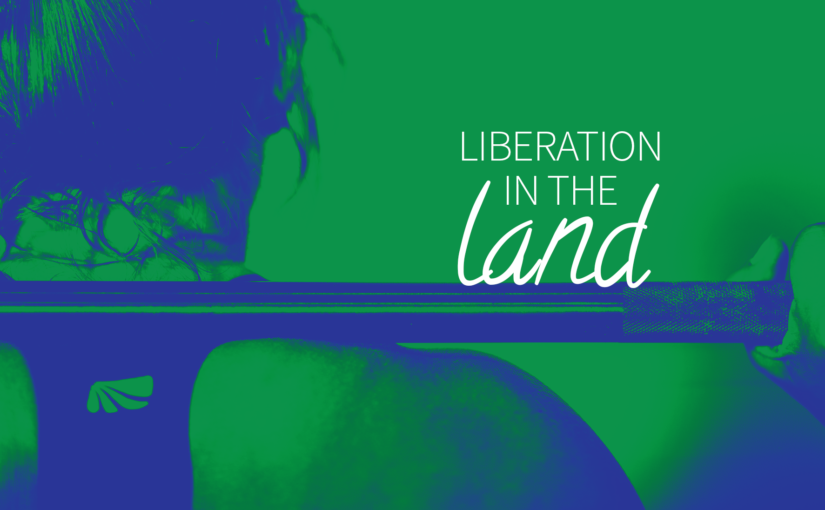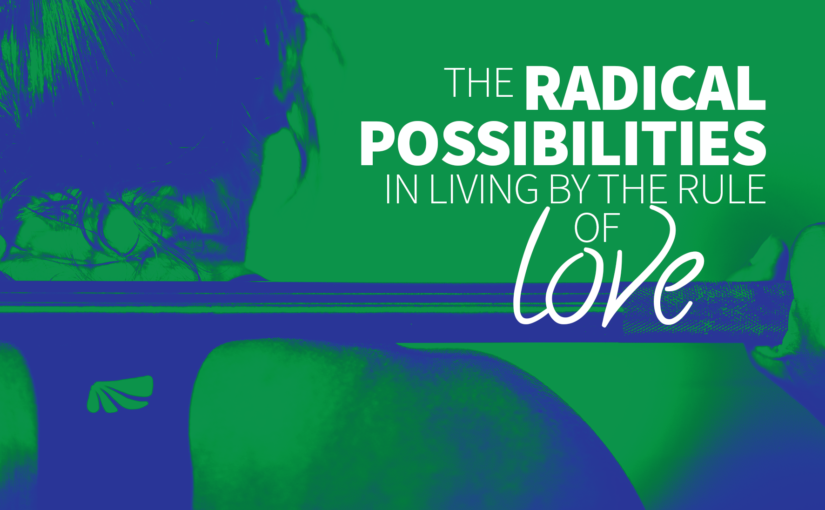Good morning, My name is Lydia. We’ve been in a series called “Training in the studio of LOVE” in the past 7 weeks, talking about love of neighbor, unselfish love of self, love of our world, and we’re wrapping up with love of God today. Training because we think even a simple thing like love, takes practice, we can get better at it, so we’ve been training, working it out, in this studio, so let’s go, on how to love God. Let me read this story from the Bible, I’ll pray and get us started.
Luke 7:36-50 (NIV)
36 When one of the Pharisees invited Jesus to have dinner with him, he went to the Pharisee’s house and reclined at the table. 37 A woman in that town who lived a sinful life learned that Jesus was eating at the Pharisee’s house, so she came there with an alabaster jar of perfume. 38 As she stood behind him at his feet weeping, she began to wet his feet with her tears. Then she wiped them with her hair, kissed them and poured perfume on them.
39 When the Pharisee who had invited him saw this, he said to himself, “If this man were a prophet, he would know who is touching him and what kind of woman she is—that she is a sinner.”
40 Jesus answered him, “Simon, I have something to tell you.”
“Tell me, teacher,” he said.
41 “Two people owed money to a certain moneylender. One owed him five hundred denarii,[a] and the other fifty. 42 Neither of them had the money to pay him back, so he forgave the debts of both. Now which of them will love him more?”
43 Simon replied, “I suppose the one who had the bigger debt forgiven.”
“You have judged correctly,” Jesus said.
44 Then he turned toward the woman and said to Simon, “Do you see this woman? I came into your house. You did not give me any water for my feet, but she wet my feet with her tears and wiped them with her hair. 45 You did not give me a kiss, but this woman, from the time I entered, has not stopped kissing my feet. 46 You did not put oil on my head, but she has poured perfume on my feet. 47 Therefore, I tell you, her many sins have been forgiven—as her great love has shown. But whoever has been forgiven little loves little.”
48 Then Jesus said to her, “Your sins are forgiven.”
49 The other guests began to say among themselves, “Who is this who even forgives sins?”
50 Jesus said to the woman, “Your faith has saved you; go in peace.”
Let’s pray. Loving God, we come to you this morning, longing to experience something bigger than ourselves, curious of what you might have to offer us today. We come into this place, for some of us with great shame and distress, unsure of how we could possibly find love. Or for some of us, things have been so mundane and steady that we’ve become numb and uninspired to the holiness around us. Or for some of us, we’ve been so busy and distracted, it’s nice to just have a moment of quiet. Wherever we are this morning, would you remind us, that you created us in your image, and called it good. That no matter how far you might seem in this moment, that you mean to pursue us with abundant enduring love, and you run toward us to restore us wholly and completely. Would you convict us of that today, perhaps through this story, we pray, Amen.
So, we read this story in a Women’s Bible Study Group I lead last year. It was through a practice called Lectio Divina. Where you read, sit in silence, and reflect. At this particular meeting, after we read, we sat in silence together, waiting for someone to share—holy zoning out I call it. I think I might have said something like, “touching feet, that’s pretty weird.” Cause you know I like being awkward—just saying, it is weird! But then a woman started sharing, that her grandfather had just passed away. She shared how they sat around him in the room in the last few moment before his death. She remembered how irregular his breathing was, and whenever he would stop, they’d all sort of hold their breath together, wondering if he was still “with us”. And as they did so, they would constantly check his feet, because apparently when someone is getting close to passing, the temperature of their hands and feet drop. She remembered lifting the blanket, and touching his feet, checking up on him again and again. She’d never touched someone’s feet like that. It was how they were able to care for her grandfather in that time. What a picture of love and intimacy. Of care, tenderness, and connection. Feet. Touching. Love expressed. Hearts poured, body mended.
What was it that compelled this sinful woman such devotion and release of love? Something utterly and totally took over her being, leading her to this intrusive and courageous act. What caused her to treat Jesus as someone she loved and cared for so dearly and intimately?
She loved because Jesus loved her first. How? What happened? The Pharisee was confused too. Why was she acting like this? To explain, Jesus tells this story.
A certain creditor had two debtors; one owed five hundred denarii,[b]and the other fifty. 42 When they could not pay, he canceled the debts for both of them. Now which of them will love him more?
Last week Ivy used a text about taxes to talk about God’s love. This week, I’m using one about moneylender and debt! Well, I’m not. Jesus is. And there is something here. Why is Jesus telling this story to explain her love? We take this lightly in Christian jargon—Sin, debt, forgive our sins as we forgive our debtors—almost interchangeably. But what is the relationship between sin and debt?
Let’s look at debt first. To be in debt means essentially be tied to, responsible to, one could say even enslaved to the one whom you owe money to. During the housing crisis, people who couldn’t make their mortgage ended up losing their house to the bank. They owned your home. If a house was foreclosed, it’s as if someone died there or something, like a disease that took over the house, a darkness. I had a close friend who ran a fashion boutique for a while, but then during the financial crisis in 2008 had to close down and apply for bankruptcy. Not only was she out of money, but her livelihood, her purpose, her moral, took a hit as well.
The Pharisee in this story calls her a sinful woman. And to most of us we simply think that she must’ve done something wrong or bad. The word sin, not only describes someone who was morally deficient but a sinner was actually “anyone who was outside of the law”. And outside of law meant those who were considered “unclean” and couldn’t participate in the temple rituals. Which include the disabled, slaves, those in debt, even those who just gave birth. According to Leviticus 12, after a son you were unclean for 33 days after giving a son, for a daughter 2 weeks, and you would bring a lamb or a dove for purification. Then you’re clean. Then you are reinstated back into the temple life (which was basically all of life, it’s where the farmer’s market happened, where the festivals were, where you paid taxes—everything). There were many rules that would consider one a “sinner” which would thereby cut you off from the community. Frankly, for the Jews, any Gentile was pretty much a sinner.
And it’s also curious that most people assume this sinful woman was a prostitute, when the text does not say so. Even in the popular bible translation the Message, Eugene Peterson writes, “Just then a woman of the village, the town harlot…” when the original text says nothing about that. Just like the Pharisee here, and pretty much the rest of the religious leaders thereafter, tried to make it about “sin” to exclude people, when the reality was, that was just their way of categorizing someone who is unworthy of a flourishing life. Unworthy of being touched. Unworthy of entering the temple. Unworthy of power.
Maybe this story of two debtors that Jesus tells isn’t just a hyperbole. Whatever “sinful” state this woman was in, it probably simply meant that she was an outsider with an impossible “debt” to society that locked her in that indebted role. Jesus was saying, whatever debt you think this woman owes, I forgave it. And so of course the Pharisee’s like, who is this guy who think he can “forgive sins” aka “erase debt”. It’s like if I walked up to Sallie Mae and I was like, hey you know all these student loans, they’re fine, it’s taken care of, don’t worry about it. They’d be like, “don’t worry about it?— who are you?”
What if the point of the story isn’t that Jesus forgave her sins, but liberated her from the system of debt that oppressed and kept people locked in their label bracket—”sinner”.
Economy historian Michael Hudson, in his book ...and forgive them their debts: Lending, Foreclosure and Redemption From Bronze Age Finance to the Jubilee Year (what a name of a book!), makes the case that the Bible and Jesus was actually more occupied with debt than sin. And in fact, that’s what got Jesus killed.
At the beginning of Jesus’ ministry, in Luke 4, Jesus stood in a synagogue reading from Isaiah:
“The Spirit of the Lord is on me,
because he has anointed me
to proclaim good news to the poor.
He has sent me to proclaim freedom for the prisoners
and recovery of sight for the blind,
to set the oppressed free,
19 to proclaim the year of the Lord’s favor.”
20 Then he rolled up the scroll, gave it back to the attendant and sat down. The eyes of everyone in the synagogue were fastened on him. 21 He began by saying to them, “Today this scripture is fulfilled in your hearing.”
With this he announced the “year of the Lord’s favor”. He was talking about the long tradition of the year of Jubilee. Jubilee was the fiftieth year in which you return the foreign slaves to their home lands and return the property to the original clan. It was the year of debt forgiveness and liberation of slaves. This was Jesus’ mission: “to proclaim the good news to the poor, free the prisoners, recovery of sight for the blind, and to set the oppressed free.” Jesus came to announce and fulfill the year of the Lord’s favor, mercy and freedom to all. This proclamation of Jesus confused and angered the elites. It was too political. Too dangerous of a uprising, a revolution! And it ended with the execution of Jesus.
And that’s why this was good news to the poor. And again, the word “poor” wasn’t just about people who didn’t have money, but outcasts, foreigners, thieves, ethnic minorities, the sick, the unemployed—the other. Jesus turned the order upside down by telling the story of the debtors, and lifting up the woman to be greater than the Pharisee. Through this story Jesus was reinstating this woman from sinner to a free person, liberating her from the economic system and bringing her back into the fold of the society and community. Jesus was turning classism upside down.
But not only class but gender and sex too. This whole story is actually altogether quite sensual. She’s sitting behind his feet. Crying. She lets her hair down, which in that culture was a no no, and she’s wiping his feet with her hair. Like I said, feet, weird! I guess I’m like the Pharisee, seeing this story, going, “gasp, how could she!?” But Jesus defends her. He sees this very physical sensual moment and doesn’t twist it. He normalizes her act. He honors it and lets it be, in fact he lifts it up to be the right act.
We twist things like money and sex. Both of them aren’t inherently evil. The love of money is evil. And sex, well the church does a horrible job of talking about sex for the most part, well except, my 2nd or 3rd Sunday at Reservoir was about Patriarchy and Speak Out Sunday about the #metoo movement, but seriously THAT’S so rare. Usually churches are like—sex, just don’t! Unless you’re married, then do. And like that’s about it on sex.
For Jesus to let a woman touch her was crossing gender boundaries. For her to be able to let her hair down and touch him was to respect her sensuality. It wasn’t creepy or weird or awkward. He accepted and received her love and physical expression of that love. What would it be like to see sensual, sexual love as a revelatory metaphor for loving God? It’s like the biblical understanding of God’s love according to the book Song of Songs. Which is actually long erotic love poetry about a man and a woman. Why is this in the Bible? Again and again, it always found its way into the Bible even when some didn’t think it belongs, because God isn’t even really mentioned. The whole book is about sexual desire, and it’s been kept because romantic love is a strong metaphor for how God loves us. (And side note: it doesn’t mean that you can’t know or experience God’s love if you’re asexual or not in a relationship, it’s just one of many metaphors that only help. Like we’ve never had a king but we use that metaphor all the time.)
When we were taught in Youth Group to not date—cause it’s sin—and that Jesus is our boyfriend, I always asked, how do you make out with Jesus? The Bible Study leader didn’t like that question. But jokes aside, what would it be like to see God as our lover—our intimate partner? I think it could be helpful because we think about love or finding the one or romance, a lot in our culture (it’s a bit overemphasized and put on a pedestal—I think that makes the metaphor even more accessible for us, more than a king I’d say!). Could some of the ways we think and feel about romantic love shed light to how we are to be in loving relationship with God? I think so! God seeks intimacy with us. God wants to know us deeply and honors our sexual bodies.
I got this from one of your Instagram, a quote by Rob Bell, a popular pastor—he says, “The word sex comes from this ancient Latin word where something was “sext” – meaning “cut off”. So your sexual energies are your desires to be reconnected with everything you’re here to be connected with. So we in some ways are born in these disconnections and we know they’re not right. And for many people, they’ve been taught that sex is just two people fumbling around rather than sex being the transfer of energies that happens all the time because we’re all longing for connection.”
God wants to connect deeply with us and seeks to restore our sexuality with the self and with one another, and express God’s love through such connection.
In a new book called Shameless: A Sexual Reformation by pastor Nadia Bolz-Weber, she was talking about how churches often use people’s financial giving, tithing, as a sign of spiritual health. And she adds, “Maybe a good sex life—whatever that looks like for who we are as individuals—can also be a sign of spiritual health. As your pastor, I want that part of your life and your relationship to be good. I want your sexual life to be free from fear and shame and to be joyful and true to who you are as individuals, because it is a holy gift from God.”
What would it be like for you to see your sexuality as something God wants to restore, accept, and love? What would it mean for God to affirm your sexuality, healthy and good and I don’t mean just pure—sigh… is feet touching pure? It’s real, it’s bodies, it’s humanity. I’m pressing this point because I think that some of our evangelical history has been not just toxic, but detrimental to our sexuality with things like purity culture. It was like a thing for folks to do a ceremony with young girls and their dads (like that’s weird—why not moms?) and get these promise rings to not have sex. I do believe there were good intentions and wisdom they were trying to get at but it’s also been a cause of so much shame and isolation of our sexualities. Look, sex is complex so I’m not here to lay out a new sexual ethics for us right now but, don’t you see? God is not afraid of your body. So much so that God decided to become a body as Jesus. And be kissed by a woman, with long hair, with oil. And if you’re feeling uncomfortable, I mean, I feel kind of vulnerable talking about this as a woman here to be honest, but we’re all feeling that because we’re human and we have bodies—we’re sexual beings, and we have senses, and that’s okay!
Friends, our finances and our sexuality, money and sex are important to us. And God sees the corruption of our economical system and our sex culture. Jesus was never about be a nicer person, but he was raising the bar on everything and turning whole eco-system upside down. He wants to liberate us from it all, to restore us to freedom, in and with our money and with our bodies. And when we realize that, that’s exactly what happens, freedom and power with our money and our bodies. I should’ve named this sermon, money, sex, and power, because here’s what happens.
This woman, having been so moved by the message of Jesus’ liberation, and being accepted wholly with her full being as a woman, her response was this powerful bold move. She walked into this Pharisee’s house, mixed in with her tears and shame, I just imagine her shaking nervously but also strangely determined to do this. That jar she poured out—they say it might been worth a year’s worth of salary. This was an expensive sacrifice. I mean, I have a nice skin care product from Sephora, a serum, that I got as a Christmas gift. It’s got this fancy dropper, and it’s glass, and every time I use it, I’m like so afraid I’m gonna drop it. Skincare products are so expensive—why, they’ve got little viles costing 100-200 dollars! But her, she was able to generously pour out her precious perfume at the feet of Jesus.
It doesn’t say this in Luke, but this similar story is in each of the 4 gospels and other accounts of the stories actually has her anointing Jesus for his burial. And Jesus points to her and says, wherever the gospel is preached, it will be done so in memory of her.
This story, actually is one that brought me into ministry. I’ll wrap up with my personal story.
At the end of my time at UCLA, I was feeling pretty worthless and defeated. I was actually graduating “late,” I walked the ceremony but had to take like extra 6 classes over the summer to graduate in time, which was a huge source of shame, especially in the Asian culture—you are like considered like, “oh she graduated late, yikes”. I didn’t have a job lined up after college. And part of it was—honestly—I partied a lot. Los Angeles has a way of seeping into your skin, and as a young woman it’s not the best influence. Like, I’m not even a football fan, but a few weeks ago I was like yeah L.A. sucks, go Pats! Beat L.A.! Oh L.A. L.A. L.A. I remember one time, I was hanging out with some girlfriends who were all models, cause that’s what you do in L.A., all tall skinny and beautiful, and it was the funny that got to tag along, they said we were going to some fashion show or something so we got dressed up and ended up somehow all getting into this Hummer Limo. And then I saw at the other end of the limo that they were doing cocaine! I was like—where am I, and had this realization that made me go, I’m very lost. And by the way, we finally got to that “fashion show” and it wasn’t a fashion show at all, but a VIDEO of a fashion show was playing on the screen! I think promoters just called it that to get models to come—so fake. So L.A. As I occupied myself with the L.A. Thing, going to certain parties that “industry” people showed up—so cool—I became more and more distant to God and stopped going to church. I had once grown up in the church and that’s where I usually had community, but I started to become very isolated.
So when one day I decided to go to church, which I did from time to time if I wasn’t out the night before, and heard a sermon on this story, I just began to sob uncontrollably. It all came crashing down on me—the shame. How that Pharisee talked about her, that’s how I felt. Growing up as a pastor’s kid, I was always judged for not being the kind of good quiet Korean Christian girl. I wasn’t shy, I didn’t laugh like this, I’d walk around laughing like this and it confused them. So when Jesus, stood up for her, and said, “do you see her?” I felt so seen by Jesus. I felt embarrassed to even be at church—how dare I, knowing the things I’ve done. I talked to myself like the Pharisee.
Even when I started feeling a call into ministry, I thought, how could I preach from the Bible? People will say, do you know what kind of a person she is? That she is a sinner! And I still feel that. I’m not the most holy person, or the most patient. I’m not that Christ-like and I don’t pretend to be. I really tried to curse less when I first became a pastor, and now I don’t even try. Honestly, it is a scandalous thing that I should be up here preaching the gospel.
But you know what? I’m here for Jesus, and damn it, Jesus says it’s okay for me to be here, to worship him with all my guilt and shame. To sit at his feet and let my hair down. And if I can, since he lets me, I don’t mind bringing all my gifts—my most precious things, my time, my energy, my money to his feet to bring him glory, to honor him, to anoint him. And then as I grew in faith I realized, Jesus wasn’t just forgiving me my sins but turning everything new. It was bigger than my own personal moral failings. God was changing the economy, racism, sexism, and that gave me greater hope with greater audacity to serve. Like her, I wanted to anoint the feet of Jesus. And I thought, well the Church is the body of Christ. Maybe I can serve there, and that would be okay.
Will you let God see you? Will you come sit at the feet of Jesus, no matter what anyone else might say? My invitation to you this week is that you try doing that. Come to the feet of Jesus. To the places where others might say, what are you doing! Why are you doing that?
Stories of Jesus interacting with people are powerful because we get to see and experience God’s love for them. Just as this story personally impacted me, there might be a story that God speaks to you through the Scriptures. Try picking a story, maybe a story you’ve heard about, Zachhaeus, or the rich young ruler, or the one where Jesus healed the paralytic. Whichever, here’s what I suggest to people often. If you’re not sure what’s in the Bible, google it! And then go look up the text in the BIble, and read it slowly. Let it wash over you and enter into that story. You can try that Lectio Divina, with the guide in your program. Let God enter into your whole being: your mind, your heart, your body, your everyday life, and know that God loves every bit of it and wants to restore and transform it completely. Will you let God do that?
Let’s pray:
Holy and Gracious God, You have created us good. And then things got kind of complicated, with our own mistakes, systems and culture. Would you take over every part of us that is broken or tainted and bring it back to your original intent. We long for that loving healing power in our lives. Spirit would you move in us to see and experience that love, that we may be humbled and kneel before you, with all that we are, ready to serve as you call us to do. We pray in Jesus name. Amen.
An Invitation to Whole Life Flourishing
Spiritual Practice of the week:
- Read the text aloud once. Simply receive and notice the story. What word or phrase stood out to you?
- Read the text a second time. Analyze what’s going on. What do you have questions about? What did you notice further?
- Read the text one last time. What came up for you personally as you read the text?








